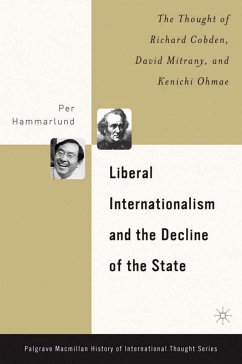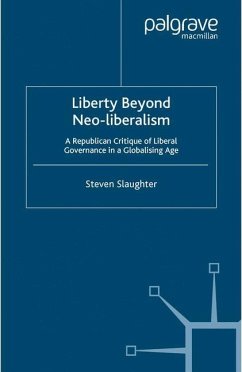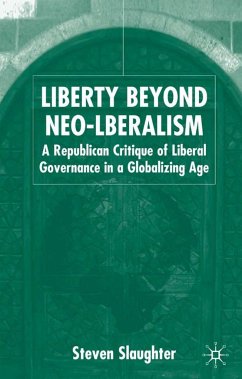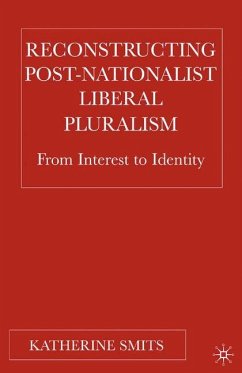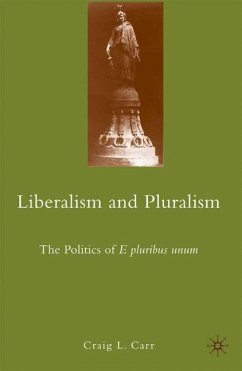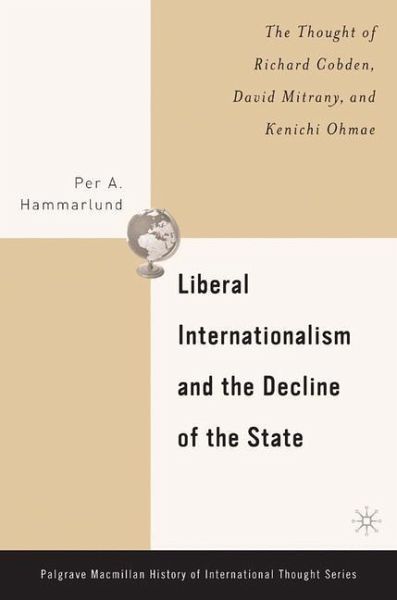
Liberal Internationalism and the Decline of the State
The Thought of Richard Cobden, David Mitrany, and Kenichi Ohmae
Versandkostenfrei!
Versandfertig in 6-10 Tagen
38,99 €
inkl. MwSt.
Weitere Ausgaben:

PAYBACK Punkte
19 °P sammeln!
This book provides a critical analysis of the liberal ideas of the decline of the state through a historical comparison. It takes special note of the implications of state failure to control economic growth and market exigencies for international relations. The book is divided into three sections. The first analyzes Cobden, Mitrany, and Ohmae's empirical claims, the second looks at their normative judgements and the third looks at their predictive assertions. It concludes that the three primarily propose normative arguments for less state involvement in economic and international relations but...
This book provides a critical analysis of the liberal ideas of the decline of the state through a historical comparison. It takes special note of the implications of state failure to control economic growth and market exigencies for international relations. The book is divided into three sections. The first analyzes Cobden, Mitrany, and Ohmae's empirical claims, the second looks at their normative judgements and the third looks at their predictive assertions. It concludes that the three primarily propose normative arguments for less state involvement in economic and international relations but conceal them in empirical and predictive assertions. The liberal idea of the decline of the state is more of an ideological statement in response to political, social, and economic trends than an objective observation of an empirically verifiable fact.



